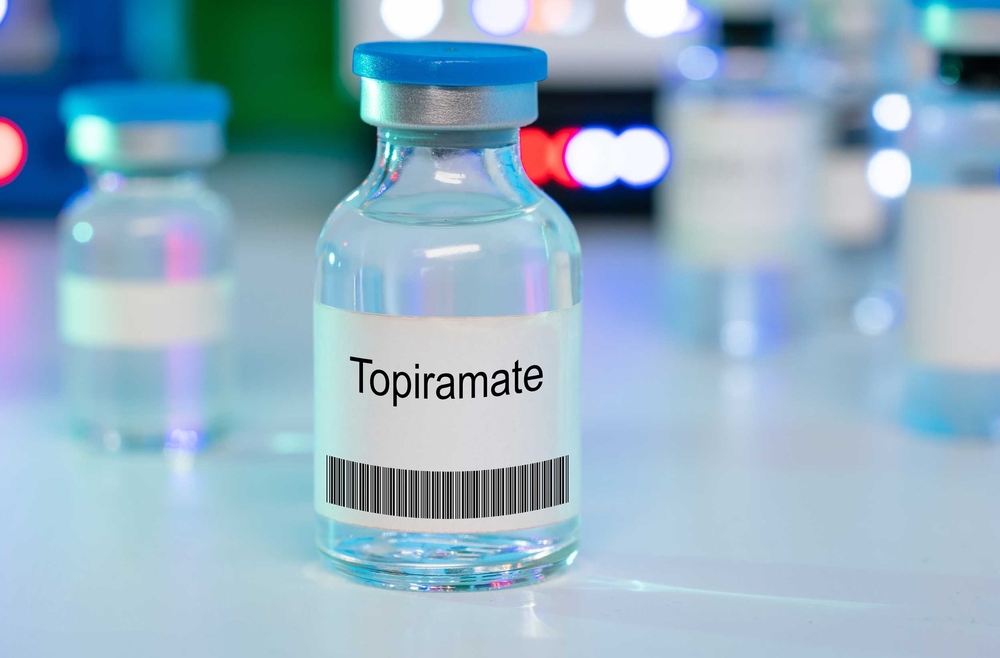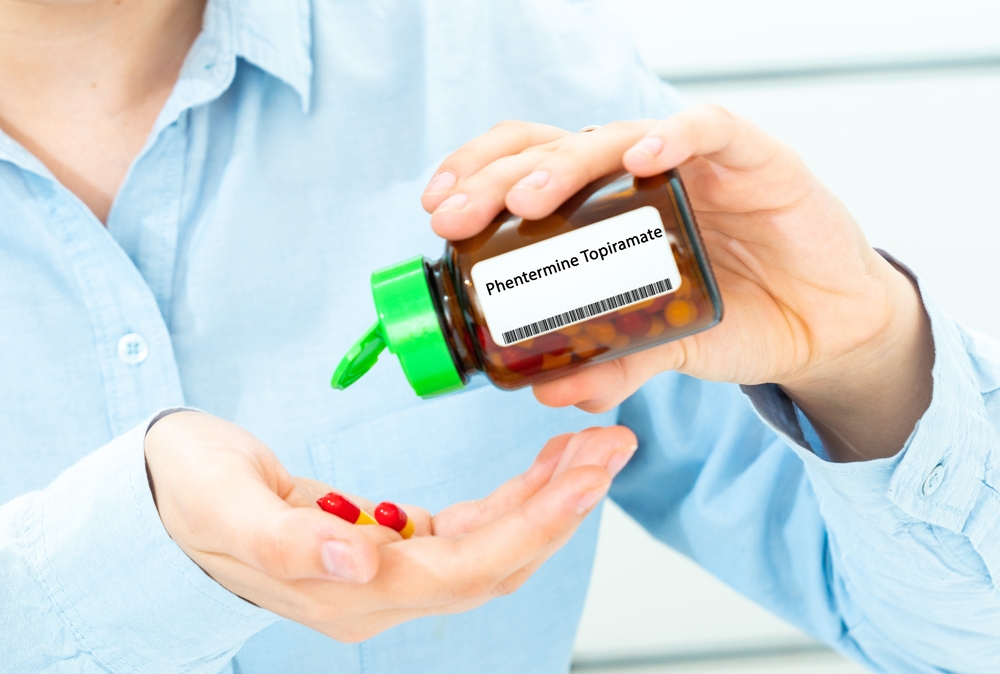Last Updated:
July 21st, 2025
Taking Topiramate as Part of the Detox Process
Staying sober from alcohol can be tough, with cravings often threatening to overwhelm even the most determined people in recovery. During these difficult moments, however, the right detox medication can help tip the balance in your favour. Topiramate isn’t a magic cure but for some people, it can be very helpful in reducing cravings and preventing relapse. If you’re thinking about using topiramate as part of your alcohol addiction treatment plan, it’s important to understand how it works, what it can help with and what side effects to watch out for.

What is topiramate?
Topiramate, also known by its brand name Topamax, is an anticonvulsant that was first created to help people manage seizures and prevent migraines. However, over time, doctors have also found that topiramate can also help with things like weight loss and even support people trying to beat alcohol addiction.
Topiramate comes in various forms, including tablets, solutions and extended-release capsules. It is most commonly given as a topiramate 25mg tablet, with doctors preferring a lower dose initially, with an increase as needed. This helps you get used to the medicine while keeping topiramate side effects minimal.
How does topiramate work?
Many medications target just one part of the brain but topiramate gently changes how several systems operate. This overall calming effect is why topiramate is so useful for conditions that involve overstimulation, such as seizures and the mental chaos caused by alcohol withdrawal. Here are some of topiramate’s actions on the brain and body:
Effects on GABA
A big part of how topiramate helps is through its effects on GABA (gamma-aminobutyric acid), a chemical in your brain that naturally slows things down. Topiramate boosts GABA, which can help reduce restlessness, lower stress levels, and bring a much-needed sense of calm when your brain feels like it’s on overdrive.
Effects on glutamate receptors
Another way topiramate medication helps is by turning down the volume on glutamate, a brain chemical that can lead to overstimulation and even damage. By blocking some of this activity, topiramate helps bring things back into balance.
Effects on sodium channels
Topiramate also affects how brain cells send messages by slowing down the flow through sodium channels. This prevents the brain from going into overdrive, especially during migraines and seizures.
Effects on carbonic anhydrase
One lesser-known effect is topiramate’s impact on carbonic anhydrase, an enzyme that helps regulate how your body handles acid. These effects explain why topiramate can help with weight management but may also be the cause of some side effects.
How does topiramate reduce cravings and withdrawal symptoms?
Topiramate detox medication helps reduce cravings by rebalancing the chemicals that get thrown off by alcohol misuse. It turns down the “reward” response alcohol creates so that drinking doesn’t feel as pleasurable anymore. At the same, topiramate helps ease the anxiety, restlessness and cravings that often show up during withdrawal and overwhelm many people into relapsing.
Topiramate can also give your brain a little more breathing room to make smarter choices. If you’ve struggled with acting on impulse, especially when it comes to drinking, its effects on your cognitive ability can help you pause, think and choose differently. This is very important during every stage of recovery when complacency and old habits can slip in.
While topiramate detox medication can be a huge help, it is important to think of it as one piece of a bigger puzzle. This means topiramate-supported detox should be combined with rehab therapy, medical support and aftercare to create the kind of solid, all-around plan that makes long-term recovery more achievable.

What are the potential topiramate side effects?
Topiramate is generally well tolerated, but that doesn’t mean it is completely side-effect-free. Knowing what to look out for can help you and your healthcare team make informed choices if something feels off. Some common but generally mild topiramate side effects include:
- Mental slowdown
- Emotional ups and downs
- Paresthesia (a “static” feeling in your fingers or toes)
- Fatigue
- Weight loss
- Dizziness
What are the more serious potential topiramate side effects?
Beyond the more common topiramate side effects, there are also some rare but serious health concerns linked to topiramate that are important to keep in mind. Knowing about these risks can help you make informed choices and spot problems early if they arise.
Some of the most serious include:
What are potential topiramate drug interactions?
Because topiramate can affect how other drugs work in your body (and vice versa), it’s really important to tell your medical team about every medication you’re using. In addiction recovery, where you might be on a mix of prescriptions, keeping an eye on interactions helps avoid serious setbacks. Some of the most notable potential topiramate drug interactions include:
Contact us today to learn more about Topamax and the detox process
If you are curious about how Topamax can help during alcohol withdrawal or just need guidance on what to do next, we’re here for you. Our team at Addiction Helper can walk you through your options and help you find a treatment plan that works. Reach out today, and we will take the first step toward real change together.
Our compassionate team are ready and available to take your call, and guide you towards lasting the lasting addiction recovery you deserve.
Frequently Asked Questions
(Click here to see works cited)
- Drugs.com. “Topiramate Uses, Side Effects & Warnings.” Drugs.com, 21 December 2022, https://www.drugs.com/mtm/topiramate.html. Accessed 31 March 2025.
- Topiramate. “Topiramate.” MedlinePlus, 15 June 2023, https://medlineplus.gov/druginfo/meds/a697012.html. Accessed 31 March 2025.
- WebMD. “Topamax oral: Uses, Side Effects, Interactions, Pictures, Warnings & Dosing.” WebMD, https://www.webmd.com/drugs/2/drug-14494-6019/topamax-oral/topiramate-oral/details. Accessed 31 March 2025.
- UK Addiction Treatment Centres. “Topiramate | Topiramate for detox treatment | UKAT.” UK Addiction Treatment Centres, 8 August 2023, https://www.ukat.co.uk/detox/medication/topiramate/. Accessed 31 March 2025.
- Fariba, Kamron A., and Abdolreza Saadabadi. “Topiramate – StatPearls.” NCBI, https://www.ncbi.nlm.nih.gov/books/NBK554530/. Accessed 31 March 2025.
- Zullino, Daniele F et al. “Topiramate in opiate withdrawal.” Progress in neuro-psychopharmacology & biological psychiatry vol. 26,6 (2002): 1221-3. doi:10.1016/s0278-5846(02)00251-8

